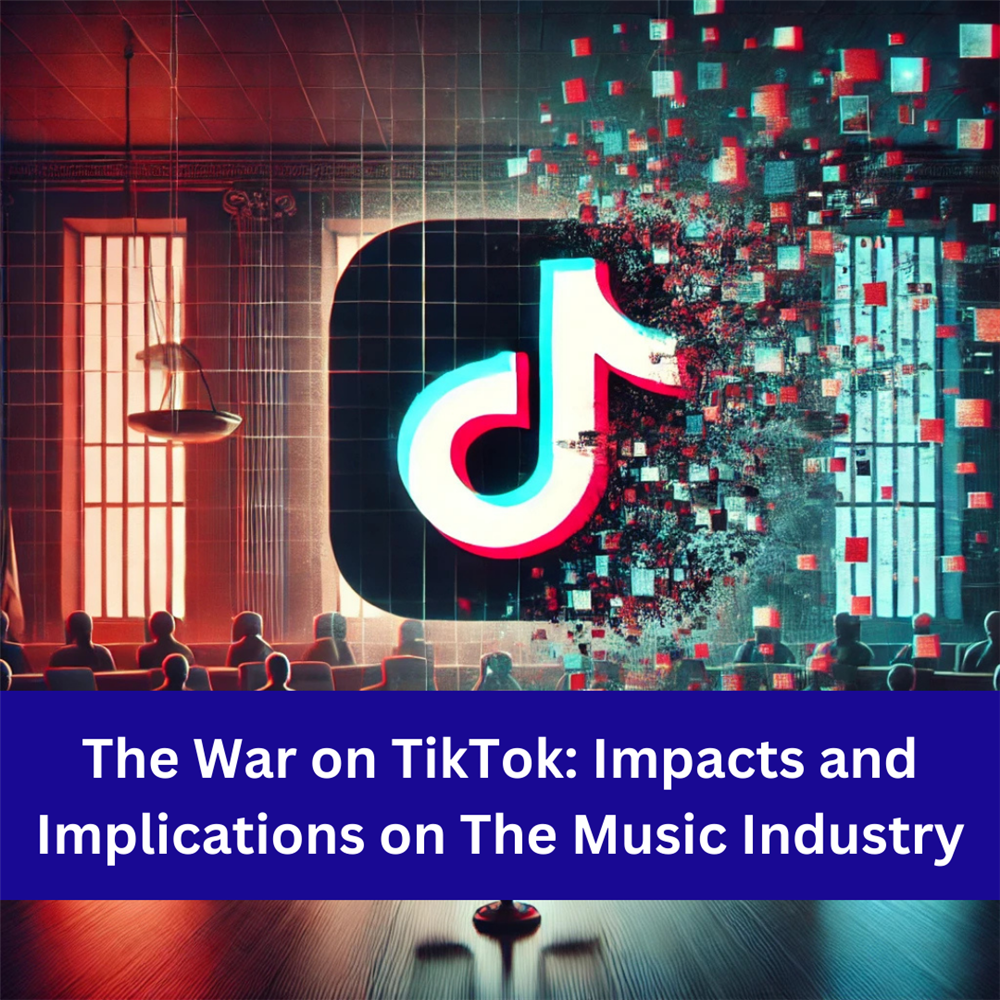The potential ban on TikTok in the United States has sent shockwaves through various industries, most notably the music industry. With recent legislative and judicial developments intensifying the situation, TikTok’s future in the U.S. remains precarious. This article delves into the background of the TikTok ban debate, the current status of the issue, and the profound implications such a ban could have on the music industry.
The Background: Why TikTok Is Under Fire
TikTok, owned by Chinese tech...
Show All...
The potential ban on TikTok in the United States has sent shockwaves through various industries, most notably the music industry. With recent legislative and judicial developments intensifying the situation, TikTok’s future in the U.S. remains precarious. This article delves into the background of the TikTok ban debate, the current status of the issue, and the profound implications such a ban could have on the music industry.
The Background: Why TikTok Is Under Fire
TikTok, owned by Chinese tech company ByteDance, has grown to become one of the most popular social media platforms globally, boasting over 170 million users in the United States alone. Its appeal lies in its ability to make short-form video creation accessible, often through music, trends, and challenges that go viral. However, TikTok’s Chinese ownership has sparked concerns among U.S. lawmakers and security experts.
The U.S. government argues that ByteDance’s ownership poses national security risks, citing fears that user data collected by TikTok could be accessed by the Chinese government. Lawmakers have also raised concerns about content moderation, alleging that TikTok could be manipulated to spread misinformation or promote narratives favorable to China. These concerns have led to bipartisan efforts to either force ByteDance to divest TikTok’s U.S. operations or ban the app outright.
Recent Developments: Where the Issue Stands
The debate over TikTok’s future took a significant turn in April 2024 when President Joe Biden signed the Protecting Americans from Foreign Adversary Controlled Applications Act into law. This legislation mandates that ByteDance sell TikTok’s U.S. operations by January 19, 2025, or face a nationwide ban. TikTok quickly challenged this law in court, arguing that such measures infringe upon free speech and unfairly target the platform.
On December 6, 2024, the U.S. Court of Appeals for the District of Columbia upheld the legislation, paving the way for the ban to proceed unless TikTok is sold. In response, TikTok appealed to the Supreme Court, which has agreed to hear the case on January 10, 2025. This timeline leaves little room for negotiation, as the ban’s enforcement would align closely with President-elect Donald Trump’s inauguration. Trump has recently stated that he has a 'warm spot' for TikTok and that he will take a 'strong look' at all options moving forward, leaving some people feeling optimistic.
TikTok and the Music Industry: A Symbiotic Relationship
The music industry has found an invaluable ally in TikTok. The platform has transformed how music is discovered, consumed, and marketed. Artists, both emerging and established, have leveraged TikTok’s virality to reach massive audiences. Tracks that gain traction on TikTok frequently climb streaming charts, generate millions of plays, and even re-enter Billboard rankings long after their initial release.
TikTok as a Launchpad for Artists
For new artists, TikTok serves as a democratized space where creativity can outshine traditional industry barriers. Viral challenges and user-generated content (UGC) around a song often lead to significant exposure. Lil Nas X’s “Old Town Road” is a prime example: what began as a viral TikTok hit evolved into a record-breaking global phenomenon. Similarly, Doja Cat’s “Say So” saw its success amplified through TikTok dance challenges.
Reinventing Promotion Strategies
Established artists and labels have also adapted their strategies to include TikTok as a central component. Campaigns now often revolve around creating engaging content tailored for TikTok’s audience, involving influencers and encouraging fans to participate in challenges. For example, Lizzo’s "About Damn Time" saw its chart resurgence due to a viral dance challenge on TikTok, showcasing the app’s unparalleled ability to reignite interest in songs.
Potential Impacts of a Ban
If TikTok were banned in the U.S., the music industry would face significant challenges in adapting to the loss of one of its most effective promotional tools. Here are some of the potential impacts:
Disruption to Discovery and Virality
Without TikTok, artists may lose a key avenue for organic music discovery. Platforms like Instagram Reels and YouTube Shorts could partially fill the gap, but TikTok’s unique algorithm and community dynamics have proven particularly effective for fostering music trends.
Loss of Monetization Opportunities
TikTok’s Creator Fund and music-specific monetization tools provide artists and labels with revenue streams that could vanish with the app’s ban. Independent artists who rely on TikTok to build their fanbases and generate income would be disproportionately affected.
Shift in Industry Strategy
Labels and artists would need to rethink their promotional strategies, possibly reverting to traditional methods or exploring new platforms. While this could lead to innovation, it would also require significant investment and adaptation.
Alternatives to TikTok
Several platforms are poised to step in if TikTok exits the U.S. market:
-
Instagram Reels: Leveraging Instagram’s established user base, Reels offers similar short-form video capabilities.
-
YouTube Shorts: Backed by YouTube’s extensive resources, Shorts has rapidly gained traction as a TikTok alternative.
-
Triller: A smaller platform that has positioned itself as a music-focused alternative to TikTok.
-
Clapper and Other Niche Apps: Emerging apps could cater to specific communities, though they lack TikTok’s scale.
Conclusion
As the Supreme Court prepares to hear the case, stakeholders across the board—from lawmakers to artists—are anxiously awaiting a resolution. Whether TikTok remains or exits, its impact on the music industry has already reshaped the landscape, forcing the industry to innovate in ways that will endure beyond the platform’s fate.
Show Less...